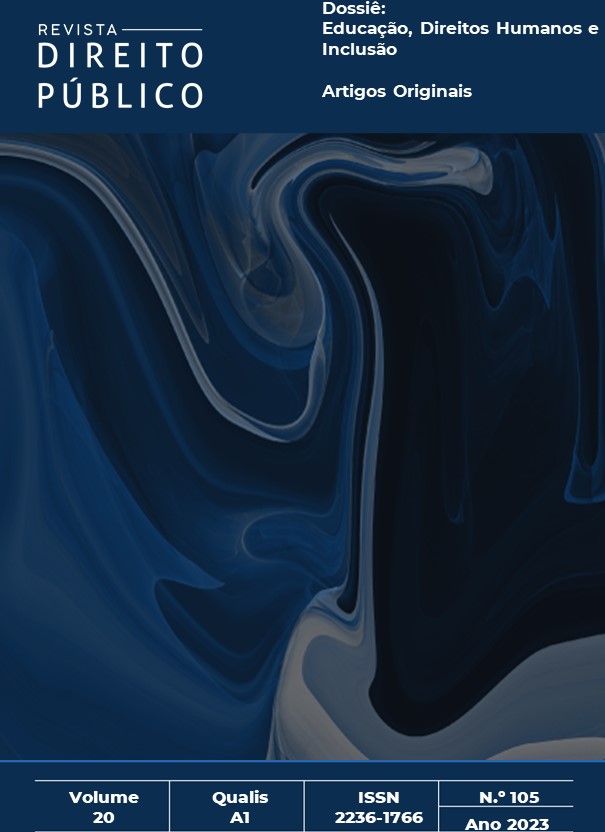CURRICULAR REFORM IN SECONDARY EDUCATION AND HUMAN RIGHTS EDUCATION
CHALLANGES AND CONTRADICTIONS
DOI:
https://doi.org/10.11117/rdp.v20i105.6902Abstract
The object of this paper is the curricular reforms in Brazilian Secondary Education and their relationship with the human rights education proposal. It is structured from the central problem to comprehend the extent that High School curriculum reform, regulated by Law # 13,415 of 2017 (New Secondary Education) and CNE CP Resolution # 4 of 2018 (BNCC – Secondary Education) for an education within a human rights perspective. It aims at analyzing the challenges and contradictions of educational curricular reforms based on the principle of human rights education. Methodologically, the text brings a critical-analytical exercise through dialectical analysis, based on the logic of appropriation of mediations that make it possible to understand the social fact analyzed in the set of its concrete determinations, as a constant exercise of research in the sense of giving power to the reading an object positioned in a way to the material, social and historical context in which it occurs (PAULO NETTO, 2011). The study indicates the necessity to consider the debate on the relationship between the ongoing curricular reforms and education in human rights to face challenges and contradictions inherent in demands of the sociability model in progress since the beginning of the 21st century. Such model reinforces the affirmation of education as a right and in human rights based on the principles of cultural promotion, democracy and the integral formation of subjects is widely recognized, but deeply impacted by power arrangements aimed at managing current social, and socioeconomic contradictions.
Downloads
Published
How to Cite
Issue
Section
License
Copyright (c) 2023 Direito Público

This work is licensed under a Creative Commons Attribution-NonCommercial 4.0 International License.
O(s)/A(s) autores(as) dos manuscritos submetidos concorda(m) com as regras a seguir:
1) Todos os autores e autoras participaram do trabalho, são responsáveis pelas ideias e conceitos nele emitidos e atestam sua conformidade com os princípios éticos exigidos.
2) Todos os autores e autoras concordam com a forma final do trabalho e em ceder os direitos para publicação nos canais de publicação da Escola de Direito do IDP.
3) Todos os autores e autoras informam que o manuscrito é de sua autoria e assumem a responsabilidade pelo trabalho, declarando que a obra a ser publicada não infringe quaisquer direitos de propriedade intelectual de terceiros.
3.1) Em caso de submissão simultânea, além da reprovação imediata do artigo e comunicação ao(s) respectivo(s) periódico(s), a Revista Direito Público se reserva o direito de não receber novas submissões de todos os autores implicados pelo prazo de 2 (dois) anos, contado a partir da data de ciência do fato.
4) Todos os autores e autoras autoriza(m) a edição de seu trabalho e cede(m) à Escola de Direito do IDP os direitos de autor para reproduzir, editar e publicar ou veicular o citado trabalho em qualquer forma midiática, resguardada a autoria, em particular sob forma digital, em arquivo eletrônico online na Internet, bem como armazená-los em seu repositório de acordo com o desenvolvimento do processo editorial. Esta concessão não terá caráter oneroso para a Escola de Direito do IDP, não havendo remuneração sob qualquer modalidade pela utilização do referido material, tendo este o caráter de colaboração científica.












